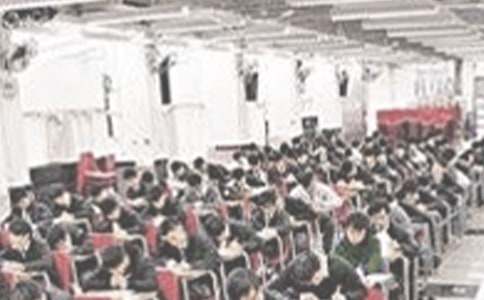2005年6月六級(jí)英語(yǔ)考試最新模擬試題(五)
Part II Reading Comprehension(35 minutes)

Directions: There are 4 reading passages in this part. Each passage is followed by some questions or unfinished statements. For each of them there are four choices marked A), B), C)and D). You should decide on the best choice and mark the corresponding letter on the Answer Sheet with a single line through the centre. Passage 1
Opinion polls are now beginning to show that, whoever is to blame and whatever happens from now on, high unemployment is probably here to say. This means we shall have to find ways of sharing the available employment more widely.
But we need to go further. We must ask some fundamental questions about the future work. Should we continue to treat employment as the norm? Should we not rather encourage many ways for self-respecting people to work? Should we not create conditions in which many of us can work for ourselves, rather than for an employer? Should we not aim to revive the household and the neighborhood, as well as the factory and the office, as centers of production and work?
The industrial age has been the only period of human history in which most people's work has taken the form of jobs. The industrial age may now becoming to an end, and some of the changes in work patterns which it brought may have to be reverseD.This seems a daunting thought. But, in fact, it could offer the prospect of a better future for work. Universal employment, as its history shows, has not meant economic freedom.
Employment became widespread when the enclosures of the 17th and 18th centuries made many people dependent on paid work by depriving them of the use of the land, and thus of the means to provide a living for themselves. Then the factory system destroyed the cottage industries and removed work from people's homes. Later, as transport improved, first by rail and then by road, people commut
>>